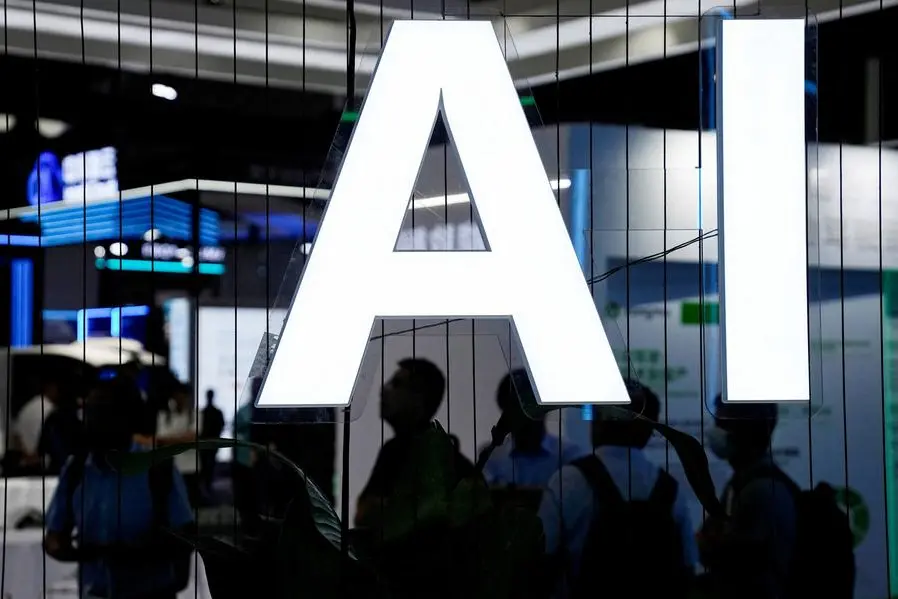PHOTO
Britain’s Labour government is drawing up a new, cost-cutting artificial intelligence strategy ahead of a crunch autumn budget – prioritising public sector adoption of the technology over direct investment into industry.
Since taking office in July, Prime Minister Keir Starmer's government has been reviewing the costs of AI. It has already scrapped a planned 1.3 billion pounds' ($1.72 billion) worth of investment in related technologies - drawn up by the previous Conservative government - including an 800 million pound investment promised to develop a supercomputer at the University of Edinburgh.
While 1.3 billion pounds is a relatively small sum in the wider AI landscape, Starmer's government faced backlash from industry leaders who said it signals that Britain is becoming less interested in supporting innovation.
By comparison France, which is building a reputation as a European hub for generative AI, recently committed 2.5 billion euros ($2.77 billion) to invest in developing the technology domestically.
The British government is also considering scrapping a planned San Francisco office for its AI Safety Institute, according to one source close to the Department for Science, Innovation and Technology (DSIT). The office was originally due to open over the summer, and would have seen staff hired in line with market rates, estimated at upwards of $100,000 each.
"Labour always needs to somehow look different to the Tories, and reining in the AI safety stuff, the focus on existential risks, is an easy way to do that," the source said.
Signalling a change of direction, tech minister Peter Kyle in July sacked one of the co-founders of the AI Safety Institute, Nitarshan Rajkumar, from his role as a senior policy adviser, according to three sources close to the DSIT.
While it is not unusual for a new administration to bring in its own advisers, some in the industry see the sacking as an unforced error. Rajkumar announced his departure from DSIT on social media platform X, but did not say his contract had been terminated.
"Huge loss to the UK civil service," Jordan Sullivan, of lobby group Startup Coalition, wrote on X shortly after. "Just the sort of person we should be doing a huge amount to keep inside the tent."
Around the same time, Labour recruited Matt Clifford, a tech entrepreneur and chief organiser of last year's AI Safety Summit under Conservative leader Rishi Sunak, to devise a new strategy. Clifford is expected to deliver the plan in September, the source said, ahead of the government's Autumn Statement the following month.
A government spokesperson said it recognised the transformative power of AI and remained committed to harnessing the technology to deliver growth and create opportunities for people across the UK.
Tech minister Kyle aims to drive AI adoption in the public sector as a means of improving efficiency and reducing costs, while cutting back the government’s direct investments into industry, according to the three sources.
TICKING CLOCK
Britain hosted the world’s first AI Safety Summit in Bletchley Park last November, drawing world leaders like Kamala Harris and tech moguls such as Elon Musk and Sam Altman.
Fears around AI’s catastrophic potential spread after Microsoft-backed OpenAI released ChatGPT to the public in November 2022, but these need to be balanced against the technology's positive aspects.
The DSIT has also started fielding applications for economists to model how widespread AI will impact Britain, according to a job description seen by Reuters.
In a previously unreported meeting in Downing Street last week, Clifford hosted around 10 representatives from some of the world’s biggest venture capital firms – including Index Ventures, Lightspeed Venture Partners, and Sequoia Capital – to discuss the government’s AI strategy.
Two people who attended the meeting told Reuters it focused on how the government could adopt AI to improve public services. They also discussed how government could better support university spinout companies, and make it easier for startups to hire from abroad.
“They didn’t give much away about where their thinking was at, beyond stressing that they only had a month to turn the review around,” one attendee told Reuters.
The government says tough decisions are needed to cut costs across the board as it seeks to plug a 22 billion pound hole in public finances.
Speaking to the Financial Times earlier this month, Kyle said he was "gearing up for a bold approach". He said the AI action plan would set out Britain's future compute needs and how government can deliver them. But some industry participants say it is not being bold enough.
"I think Peter Kyle sees this (AI) as an easy source of savings," the attendee of the Downing Street meeting said. "We're seeing a serious scaling back of ambition."
($1 = 0.7575 pounds) ($1 = 0.9014 euros)
(Reporting by Martin Coulter; Editing by Susan Fenton)





















